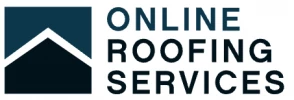Late updated: 23 Jun 2024 13:06
Written by: Oliver Bennett
Emerging Trends in UK Roofing Technology: Innovations Shaping the Future
The roofing industry is undergoing a significant transformation, particularly in the UK, thanks to emerging technologies and innovative materials. One of the most impactful trends is the development of sustainable roofing materials that not only enhance durability but also reduce environmental impact. This shift towards eco-friendly solutions reflects a growing awareness of the need for energy efficiency and environmental sustainability in our built environment.
We are also witnessing the advent of smart roofing systems, equipped with sensors and digital tools that provide real-time data on the health and efficiency of roofing structures. These advancements are making roofs not just protective barriers but integral parts of a building’s intelligent infrastructure. This blend of technology and traditional roofing practices aims to create safer, more efficient, and long-lasting roofing systems.
In addition to these innovative materials and smart systems, there is a rising trend of integrating renewable energy components into roofing designs. Solar roofs and energy-efficient insulation are becoming more commonplace, helping homeowners and businesses harness clean energy directly from their rooftops. As we continue to innovate and adopt these technologies, the future of roofing in the UK looks promising and geared towards sustainability.
Innovative Roofing Technologies and Materials
In today's roofing industry, innovation is key to addressing challenges like energy efficiency, durability, and smart integration. Emerging trends focus on sustainable solutions and advanced materials, transforming traditional roofing into high-performance systems.
Sustainable and Energy-Efficient Solutions
Environmental concerns drive the adoption of sustainable roofing. Green roofs, composed of live vegetation, offer benefits such as improved insulation and stormwater management.
Solar shingles are another eco-friendly option. They generate electricity while maintaining the aesthetics of a traditional roof. Reflective coatings also play a significant role in reducing energy costs by reflecting sunlight and lowering roof temperatures.
In addition, metal roofing remains popular for its recyclability and long lifespan. Its inherent durability reduces the need for repairs and replacements. Collectively, these technologies help reduce the carbon footprint of buildings and promote energy efficiency.
Advancements in Protective Roofing Designs
Protective design innovations enhance the durability and performance of roofing systems. The development of self-healing materials is a major breakthrough. These materials can automatically repair small damages, significantly extending the roof's lifespan.
Integrated reflective coatings further protect roofs from UV radiation, which often leads to degradation. Metal roofing is increasingly sophisticated with corrosion-resistant alloys, ensuring long-term performance in various weather conditions.
AI is also making waves in roofing. By using predictive analytics, AI helps forecast potential issues before they become serious problems. This proactive approach reduces maintenance costs and improves overall roof system reliability.
Integration of Smart Roofing Systems
Smart roofs are becoming an integral part of modern architecture. These systems incorporate sensors and control technologies to optimise performance. Smart roofing systems can monitor environmental conditions, detect leaks, and even adjust insulation levels.
Solar roofing innovations include tiles and shingles that seamlessly convert sunlight into electricity. These systems can be integrated with home automation, allowing for efficient energy management.
Another exciting development is the concept of Roofing as a Service (RaaS). It provides ongoing maintenance and upgrades, ensuring that the roof remains in peak condition. Combining smart technology with regular service reduces long-term costs and enhances the functional lifespan of the roof.
By embracing these advanced technologies and materials, we can achieve greater efficiency, longevity, and environmental responsibility in our roofing solutions.
Technological Integration and Professional Practice
The integration of emerging technologies in the UK roofing industry is transforming professional practices. Key advancements such as drones, robotics, and data analytics are enhancing efficiency, safety, and energy management in roofing projects.
Utilisation of Drones and Robotics
Drones are revolutionising roof inspections. Equipped with high-resolution cameras, they provide detailed images and videos, allowing us to assess the condition of a roof without the need for scaffolding. This reduces time, costs, and risks associated with manual inspections.
Robotics is another area experiencing technological breakthroughs. Robots can now perform tasks such as roof cleaning, maintenance, and even installations with precision. These machines are beneficial for accessing hard-to-reach areas, ensuring safer and quicker completion of projects.
This shift towards automation in the construction industry is not only increasing efficiency but also allowing for higher standards of safety and accuracy. These advancements facilitate proactive maintenance and swift roof replacements, aligning with the broader trend of technological integration in construction.
The Role of Analytics in Roofing Efficiency
The implementation of data analytics is vital in enhancing roofing efficiency. By analysing data from sensors embedded in roofing materials, we can monitor and optimise the performance of roofs in real-time. This includes tracking energy consumption and identifying potential issues before they escalate.
Energy-efficient roofing is a key focus area. Analytics help us design and maintain roofs that reduce energy waste and improve insulation, contributing to sustainability goals. For instance, smart roofing systems use data to adjust ventilation and temperature, ensuring optimal energy use.
Incorporating analytics not only provides insights for immediate improvements but also helps in predicting future roofing trends and developments. This empowers professionals to make informed decisions and stay ahead of upcoming innovations in the industry.
